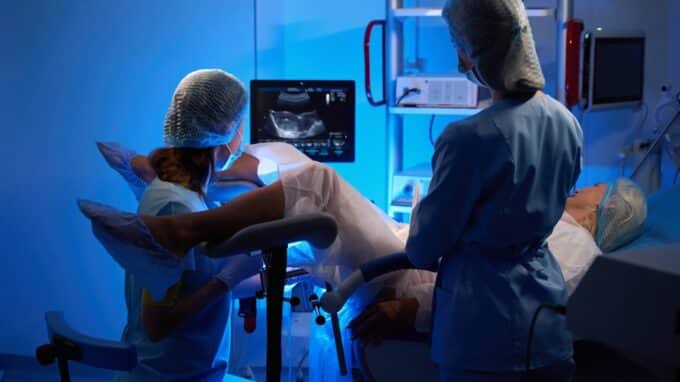Children born through frozen embryo transfer have similar metabolic profiles to children born through fresh embryo transfer. This is according to a study by Linlin Cui and Zi-Jiang Chen from Shandong University, China, and colleagues, published in the open access journal PLOS Medicine. Previous studies have shown conflicting results on the long-term effects of assisted reproductive technology on metabolic health.
Transfer with Frozen Embryos has Some Advantages
Thanks to improved cryopreservation methods, fertility treatments are increasingly being carried out with frozen embryos. Embryos created by artificial insemination are frozen and thawed shortly before implantation into the uterus. The advantages: The embryo can be transferred to the uterus at the optimum time without the need for hormonal stimulation. In addition, embryos can be stored for years for further fertility treatment. Fresh embryo transfer is the immediate transfer of embryos into the uterus after an IVF cycle. These embryos are often of better quality.
Some studies have shown that children born with the help of embryo transfer, where the embryos were previously frozen, have a higher risk of metabolic disorders, such as obesity, and unfavorable lipid profiles. In other studies, no significant metabolic differences were found between children in which frozen or fresh embryos were used.
Such Embryo Transfer Shows No Significant Adverse Effects on Metabolic Profiles in Early Childhood
In this study, the researchers compared the glucose and lipid profiles of more than 4,000 children aged 2 to 5 years – about half had been born by fresh embryo transfer, the other half by embryo transfer with frozen embryos. The researchers followed the children for an average of 3.6 years and examined metabolic factors commonly associated with heart disease and diabetes, such as fasting blood glucose, insulin, cholesterol and triglycerides. They found no difference between the different methods for any of the metabolic factors.
Given the relatively large number of participants in this study, the researchers were able to perform subgroup analyses. After dividing the children into groups according to gender, age, embryo transfer status and method of conception, there were still no differences in metabolic factors between the groups using frozen and fresh embryos.
The study provides more information for women and couples weighing the pros and cons of different assisted reproductive techniques, but the researchers pointed out that additional data is needed on the effects of assisted reproductive technology on long-term metabolic health. According to the authors, frozen embryo transfer shows no significant adverse effects on metabolic profiles in early childhood, providing important guidance for counseling couples undergoing assisted reproductive technology treatment about its safety.





